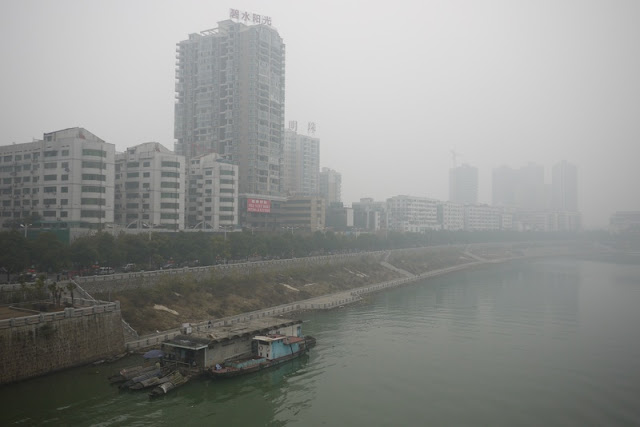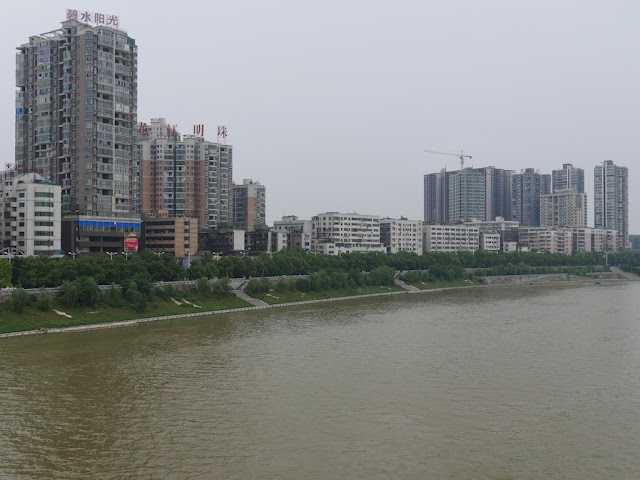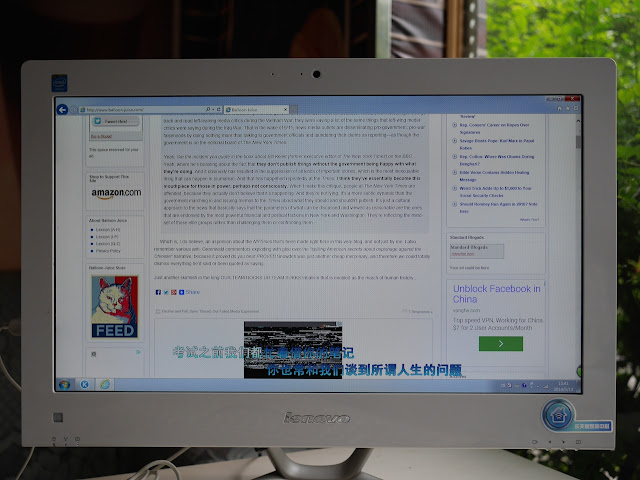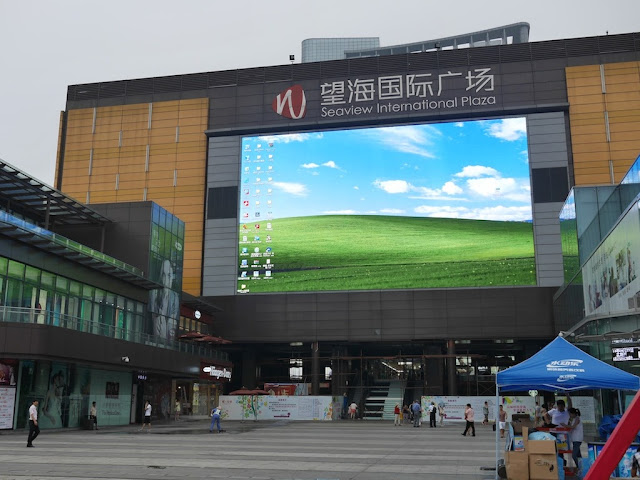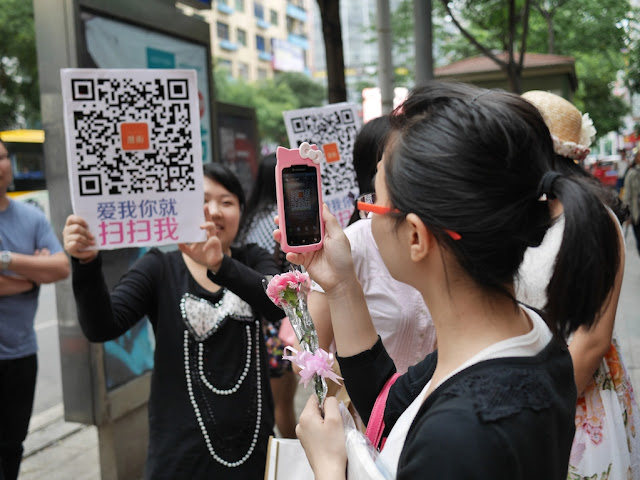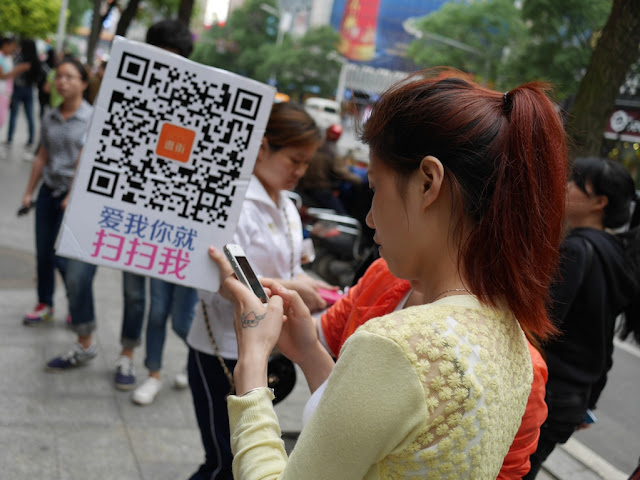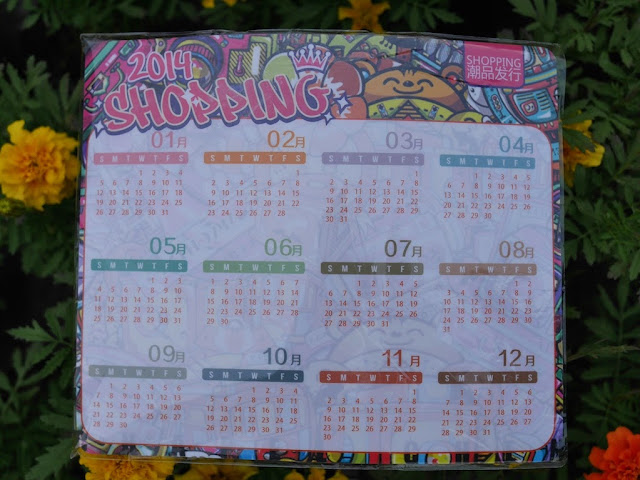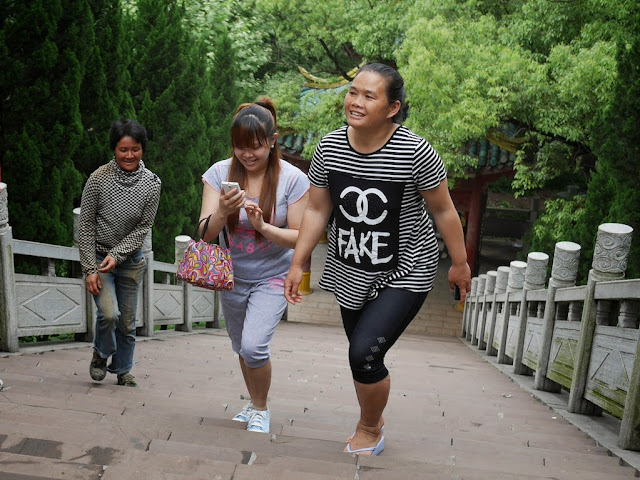In Hengyang, Hunan province, I have frequently passed a street food vendor who sells roasted chicken.
The sign below the rotating chickens advertises "新奥尔良烤鸡"--"New Orleans Roasted Chicken". It may come as a surprise to New Orleanians that their city has received this type of attention in Hengyang. But like roasted chicken vendors, "New Orleans style" chicken is not unique to Hengyang in China. For example, it is easy to find marinades for sale online. It is also offered at a popular fast food restaurant chain: KFC.
Despite their names, after seeing or tasting them, neither the street vendor's roasted chicken nor KFC's roasted chicken sandwich would have made me think of New Orleans on their own. And I don't see anything very similar to them in lists of "New Orleans' most iconic sandwiches" or "great roasted chickens" in New Orleans. When I think of New Orleans, chicken, and fast food, another American fast food chain first comes to mind though--Popeyes Louisiana Kitchen. The only Popeye's in all of China is at the Hong Kong International Airport.
The roasted chicken vendor and KFC are related in another way: one of KFC's over 4,000 restaurants in China is located directly behind the roasted chicken vendor's usual location.
I don't know what KFC thinks of this, but chengguan could be a bigger concern for the vendor. And even if nobody believes the food vendor is directly connected to KFC, I wonder if the vendor's location may cause KFC's brand to positively influence customers' perceptions, similar to the potential effects of imitating well-known brand names.
Whatever the case, perhaps the street vendor could further distinguish himself by diversifying his offerings based on the New Orleans theme. Personally, I would hope for muffulettas, but I suspect something from Popeyes menu with its spicy fried chicken would far better suit people's tastes in Hengyang and elsewhere in Hunan.
 |
| A chicken leg costs 5 yuan (about U.S. $0.80). Most of a small chicken costs 15 yuan. |
The sign below the rotating chickens advertises "新奥尔良烤鸡"--"New Orleans Roasted Chicken". It may come as a surprise to New Orleanians that their city has received this type of attention in Hengyang. But like roasted chicken vendors, "New Orleans style" chicken is not unique to Hengyang in China. For example, it is easy to find marinades for sale online. It is also offered at a popular fast food restaurant chain: KFC.
 |
| A KFC New Orleans Roasted Burger costs 16.5 yuan. (Image source) |
Despite their names, after seeing or tasting them, neither the street vendor's roasted chicken nor KFC's roasted chicken sandwich would have made me think of New Orleans on their own. And I don't see anything very similar to them in lists of "New Orleans' most iconic sandwiches" or "great roasted chickens" in New Orleans. When I think of New Orleans, chicken, and fast food, another American fast food chain first comes to mind though--Popeyes Louisiana Kitchen. The only Popeye's in all of China is at the Hong Kong International Airport.
The roasted chicken vendor and KFC are related in another way: one of KFC's over 4,000 restaurants in China is located directly behind the roasted chicken vendor's usual location.
 |
| Perfect location |
I don't know what KFC thinks of this, but chengguan could be a bigger concern for the vendor. And even if nobody believes the food vendor is directly connected to KFC, I wonder if the vendor's location may cause KFC's brand to positively influence customers' perceptions, similar to the potential effects of imitating well-known brand names.
Whatever the case, perhaps the street vendor could further distinguish himself by diversifying his offerings based on the New Orleans theme. Personally, I would hope for muffulettas, but I suspect something from Popeyes menu with its spicy fried chicken would far better suit people's tastes in Hengyang and elsewhere in Hunan.


